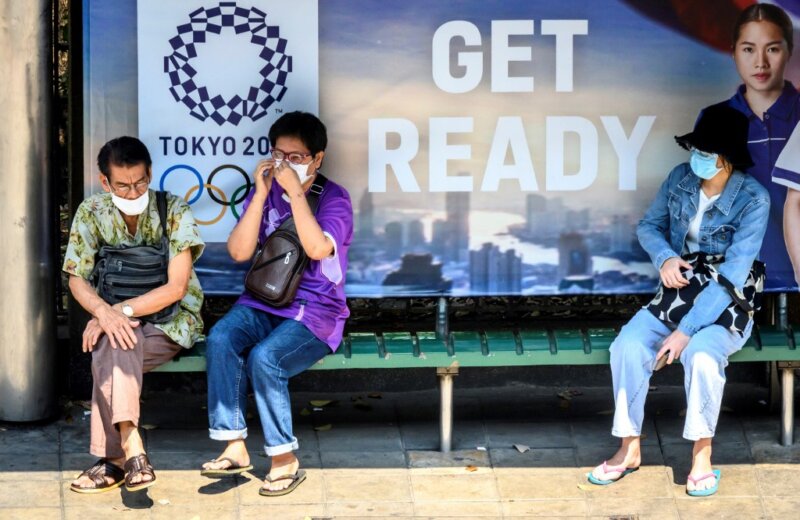The postponed 2020 Tokyo Olympics will happen “with or without COVID,” John Coats, vice president of the International Olympic Committee (IOC), defiantly told AFP on Aug. 7.
Tokyo planned for the global athletic event to be the “Reconstruction Games” after the devastation of the catastrophic earthquake and tsunami that hit northeastern Japan in 2011.
The pandemic disrupted the Tokyo Olympics, leading IOC President Thomas Bach to announce a one-year postponement of the event. Previously, the Olympics have only been canceled during the world wars.
Now the games are scheduled for July 23-Aug. 8, 2021. But for months, there has been speculation that the outbreak of the novel coronavirus would not just delay the games, but cancel them entirely.
The IOC says that isn’t about to happen.
“Now, very much, these will be the Games that conquered COVID, the light at the end of the tunnel,” Coates said.
But getting there will be a challenge — both for Japan and Ukrainian athletes.
Uncertain world
Japan’s borders are still closed to foreign visitors. A vaccine against COVID-19 seems to be from six months to several years away. The number of cases around the world continues to reach new highs every day.
The 206 teams coming to compete in the Olympics and the countries that they represent are suffering significant impacts from the virus. Coates admitted that “there’s a massive task being undertaken on the Japanese side” to make the games happen.
Public opinion is also not on the Olympics’ side. A recent poll revealed that only one in four people in Japan wants the Olympics to start on their new date. Most Japanese respondents support either another postponement or a total cancellation of the event.
Still, Japanese officials have made it clear that the Tokyo Olympics will not be postponed again beyond 2021.
“Before COVID, Thomas Bach said this is the best-prepared Games we’ve ever seen, the venues were almost all finished, they are now finished, the village is amazing, all the transport arrangements, everything is fine,” added Coates.
Now, Tokyo is focused on the monumental task of postponing the event.
It remains unclear what border regulations will look like during the games and whether fans will be able to pack the venues. Coates said that Japan’s next task is to prepare different measures to prevent the spread of COVID-19, which will be necessary for the Olympics to take place.
The financial impact of the postponement is significant. It added an estimated $2.7 billion dollars to the Olympic Games’ price tag. All the venues had to be re-confirmed for the updated competition schedule and sponsorships were renegotiated.
“(With) something like 43 hotels, we had to get out of those contracts and renegotiate for a year later,” stated Coates.
Personal ambitions
Despite the risk to public health, the Tokyo Olympics will be the last chance for many aging athletes to compete. They have been preparing for years to make their mark on athletic history.
For example, Georgii Zantaraia, a 32-years old Georgian-born Ukrainian judoka, is one of the many older athletes who were eager to compete at the 2020 Tokyo Olympics.
“I will be retiring next year, even if the Olympics get canceled. It was always my dream to win the Olympics and a dream of every athlete. I want to end my long athletic career with an Olympic gold medal,” Zantaraia told the Kyiv Post.
Crimean-born Ukrainian swimmer Andriy Govorov, who holds the world record for the 50-meter butterfly, said that he was devastated when he found out about the event’s postponement.
“I was planning to quit after the Olympics. Now I don’t know. I don’t even know if the Olympics will take place or not,” the 28-year-old athlete said. “But I took a short break from swimming during the first months of the quarantine and now I feel refreshed. I will continue to prepare for the rescheduled date and strive towards even better results next year.”
The National Olympic Committee of Ukraine is also looking forward to the Tokyo games.
A spokesperson for the Ukrainian committee said they are in communication with athletes, coaches and managers to help everyone prepare their best for next year. Athletes are at training camps “to be in the best shape possible for next summer’s Olympics.”



